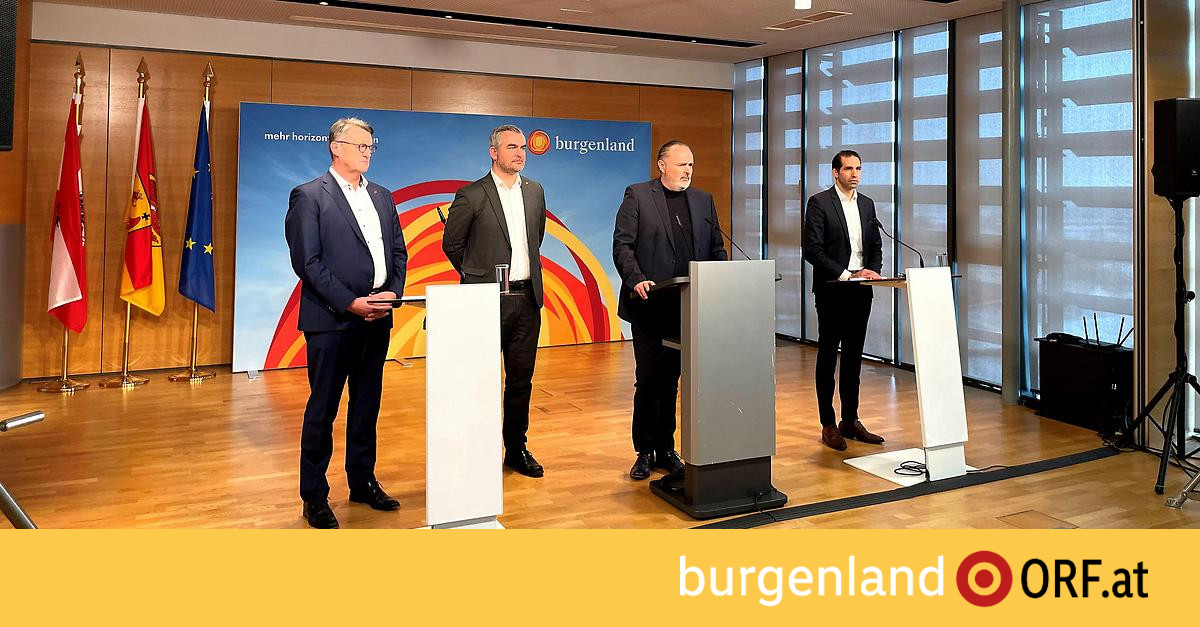The new package against inflation was presented at a press conference in Eisenstadt. A key message for the people of Burgenland is that rents will be frozen at the December 2022 level in order to absorb the price increases caused by variable loans.
Land pays ten million euros
The state will take on non-repayable interest subsidies to the cooperatives. The cooperatives, in turn, participate in this relief by refraining from further rent increases, which would inevitably be associated with additional interest rate increases. This will cost the country ten million euros in 2023.
“There are no rent increases for two years, this is a unique model and of course it costs the country a lot,” said Governor Hans Peter Doskozil (SPÖ). The state will also suspend annuity jumps in housing subsidies in 2023/24 – other housing subsidy recipients would also benefit from this, explained State Councilor Heinrich Dorner (SPÖ).
Doskozil: Tenants not responsible for variable loans
He was not happy that this situation had arisen with the rents, Doskozil replied to the question in the “Burgenland heute” interview whether the state was now using tax money to vouch for mistakes of the past because the cooperatives were using variable and not fixed-interest loans would have built. Variable rates tend to be cheaper, but they are also significantly riskier.
Governor Doskozil in conversation
SPÖ Governor Hans Peter Doskozil talks in an interview about the state government’s anti-inflation package and the leadership debate among the Social Democrats.
This discussion was conducted very intensively with the cooperatives during the preparations, according to the governor. From the point of view of the cooperatives, one could also say, “In hindsight one is smarter”. “But the tenants don’t benefit from that,” said Doskozil. And it is precisely the tenants who are not responsible for the fact that these loan obligations have been entered into variably. This is precisely why these reliefs are taking place now.
Kollar: Housing cost cap applies retrospectively
Tenants do not have to submit any applications for the “housing cost cap”. The new requirement will come on April 1st – calculated back to December 2022, but also actually retroactive to January 1st, explained the chairman of the non-profit housing cooperatives, Alfred Kollar.

Fixed electricity and gas tariffs for one year
Burgenland Energie is offering a new tariff for electricity: from April 1, 2023 to April 1, 2024 you will then pay 23 cents per kilowatt hour net, gross that is about 27 cents per kilowatt hour. For gas there should be a fixed tariff of 9.99 cents per kilowatt hour net. This price then applies to private customers, for households. It applies to SMEs, to farmers, but also to municipalities, explained the CEO of Burgenland Energie, Stephan Sharma.
Doskozil pointed out advantages and disadvantages
The fixed tariff is a regulation with all the advantages and disadvantages, added Doskozil. That, too, must be said quite frankly at this point. One does not know how the markets will develop in the next year. “When the markets develop upwards, energy prices become more expensive, then that was the best decision we could have made. If they maybe relax over the summer, then maybe dress up again later, that’ll get you through. And if they really give way extremely, then you are within this fixed price for a year,” says Doskozil.
Active customer decision
Customers have to make an active decision to switch. There will soon be an online form for this, and a letter will also be sent. It is important that all previous actions by the state and Burgenland Energie to reduce the electricity price are maintained, it said when asked.
